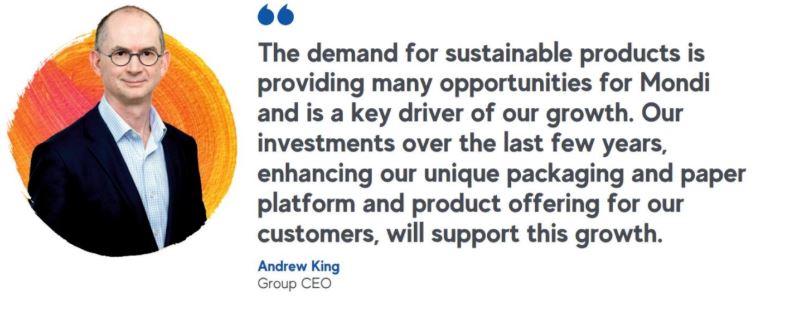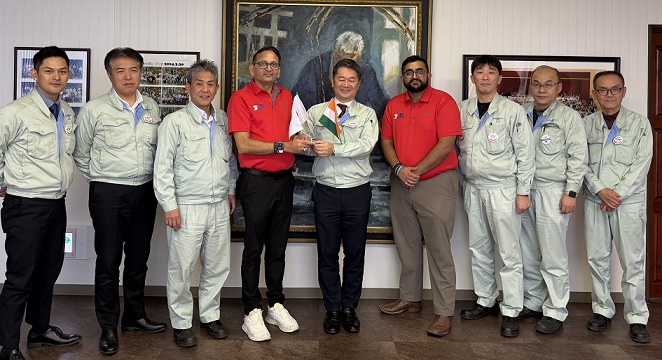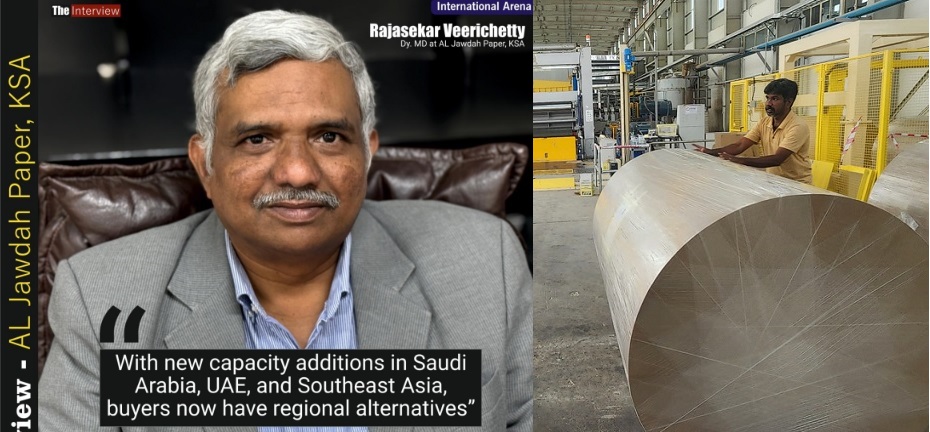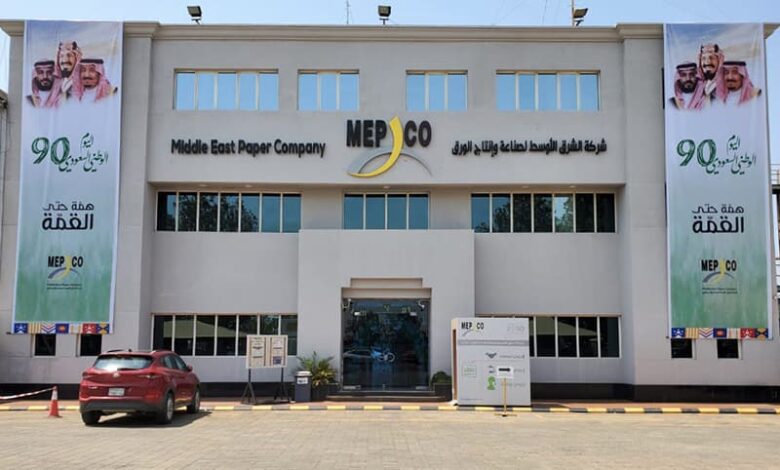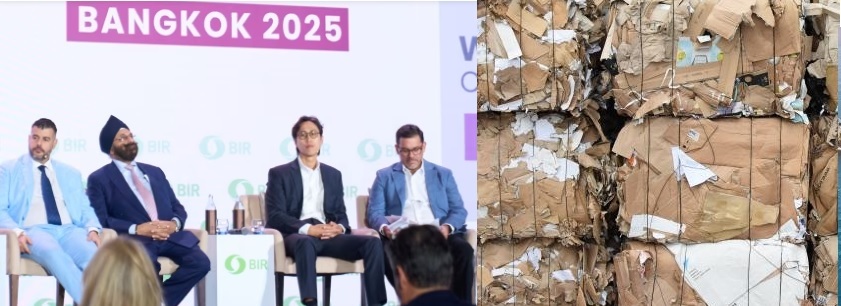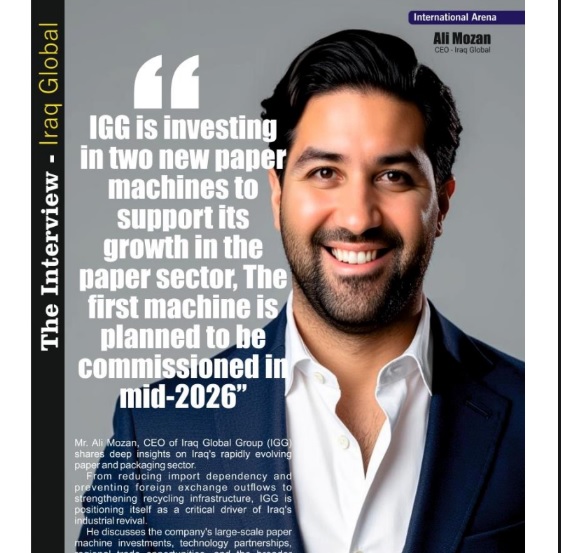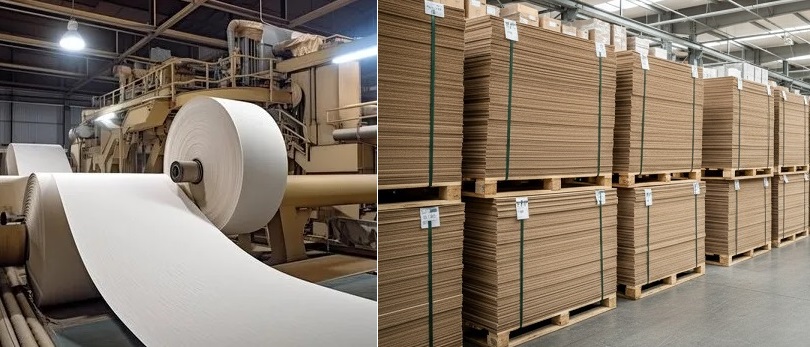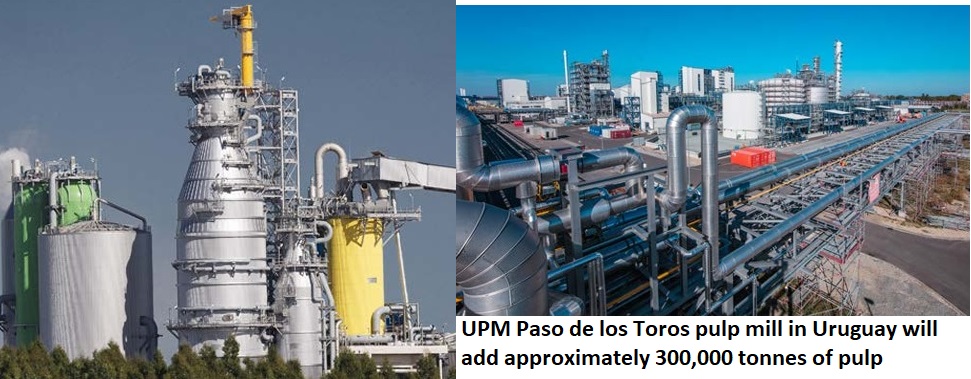The Waste Shipment Regulation and the Future of Recovered Paper Trade: EU Recyclers’ Perspective — Insight by Julia Ettinger, EuRIC Secretary General
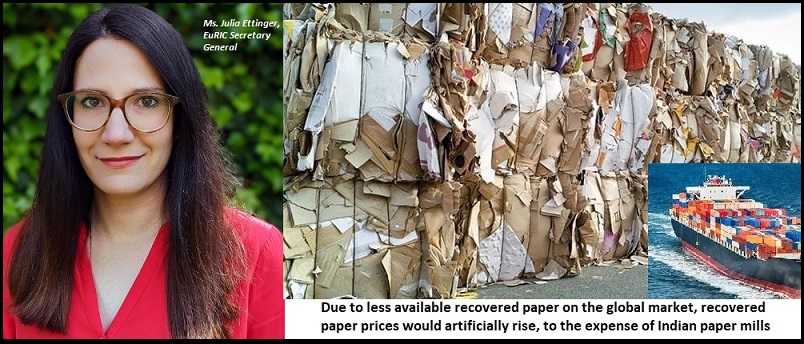
The Waste Shipment Regulation and the Future of Recovered Paper Trade: EU Recyclers’ Perspective — Insight by Julia Ettinger, EuRIC Secretary General
-EuRIC is currently working hard with non-OECD country authorities and associations on trying this export ban scenario not to happen
-Paper mills outside the EU, particularly in non-OECD countries, could struggle to secure enough material, leading to potential production declines or increased reliance on virgin fiber.
The article below is written by Julia Ettinger, EuRIC Secretary General, exclusively for The Pulp and Paper Times. In this article, she provides valuable insights and sheds light on the new WSR rules governing the recovered paper trade and their potential impact on the industry.
The Pulp and Paper Times
Recovered paper is a globally traded commodity, like metals, oil, or agricultural products. Its value depends on supply and demand, making it susceptible to price swings and trade policies. In the past, the open market has allowed recovered paper to flow to the regions that need it most, supporting their sustainability goals and also preventing surplus buildup in Europe.
Exports of recovered paper are vital for the EU, especially considering the weak demand in its domestic paper industry. As shown by the 13% drop in paper production and a 7% decrease in recovered paper consumption in 2023 (CEPI data), Europe is generating more recovered paper than it can process. With imports to Germany down sharply, exporting surplus material to the Far East has become essential. In 2023, India, as the primary destination, saw EU exports increase by over 50%, reaching 2.3 million tonnes.
Under the new, strict WSR rules, however, these market dynamics could be disrupted. If certain markets face unnecessary trade barriers, prices for recovered paper may become more unpredictable, with some regions experiencing shortages while others face oversupply. Without sufficient flexibility, transparency, and engagement from EU authorities, the transition to the new rules is precarious and risks disrupting a market that is vital for both Europe and Asia.
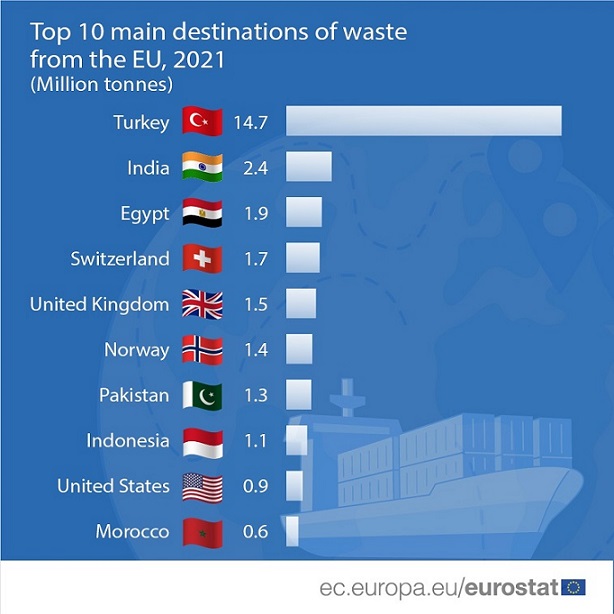
The new EU Waste Shipment Rules
Europe’s new waste shipment rules were designed with positive and important ambition - prevent the export of trash problem to third countries, tackle illegal waste shipments, and improve traceability. EU recyclers are fully committed to better protection for the environment and human health under the new waste shipment rules. At the same time, the new rules risk to also disrupt functioning international markets and supply chains which would result in less recycling. EuRIC is committed to ensure a transition to the new rules that allows the uptake of recycled resources (metals, paper, etc) wherever they are needed.
What’s changing for waste shipments to non-OECD countries
Under the new WSR, non-OECD countries have to notify their intention to import and prove they can handle the waste in an environmentally sound way, if they want to keep receiving it. They’ve got until February 21, 2025*, to apply to the European Commission including detailed information from waste management infrastructure, treatment methods and capacities to environmental safeguards and calculations of the potential impacts – among other requirements.
For many non-OECD countries (around 150 countries in the world), compiling such amounts of data until the deadline of 21 February 2025 is a challenge, also because information from the European administration on international trade impacts seem to have been insufficient. Under these circumstances, there is a real risk of missing import requests that would automatically lead to an EU export ban to non-OECD countries not filing their request. The legal consequence of an export ban is completely new compared to the previous EU waste shipment rules.
How to prevent impact on Indian paper mills
Take India, for example. India is one of the world’s largest importers of recovered paper, which is vital for its paper mills. Domestic collection alone does not meet the demand, making imports from Europe essential.
If Indian authorities would not submit the country request to the European Commission until 21 February 2025, for what reason whatsoever, an EU export ban on recovered paper would apply for India. Indian paper mills would not be allowed to import recovered paper from the EU anymore, even though economic ties between EU and India are very strong with a recovered paper EU export of around 2.3 million tons per year in 2023. As uptake of recovered paper is already high in European paper mills, recovered paper from Europe would probably have to be landfilled, instead of recycled. Due to less available recovered paper on the global market, recovered paper prices would artificially rise, to the expense of Indian paper mills. This EU export ban situation on recovered paper would be an environmental and economical absurdity, at the completely opposite of the environmental ambition of EU circular economy policies and the new European waste shipment regulation. EuRIC is currently working hard with non-OECD country authorities and associations on trying this export ban scenario not to happen.
Does the WSR Favor European Paper Mills?
A key concern among recyclers is whether the WSR primarily benefits European paper mills at the expense of the EU recycling industry. By restricting exports, the regulation could create an artificial surplus of recovered paper within Europe, lowering raw material costs for domestic mills while limiting supply for non-OECD buyers.
If this scenario unfolds, European recyclers - who depend on a steady export market to counterbalance low domestic demand for circular material - would face many bankruptcies and job losses. Also, how could European consumer still be convinced to properly sort paper waste in their households, if EU regulations would result in collected paper being landfilled instead of recycled? Meanwhile, mills outside the EU, particularly in non-OECD countries, could struggle to secure enough material, leading to potential production declines or increased reliance on virgin fiber.
Circular Economy Impacts
The circular economy thrives on efficient material flows, ensuring that recovered materials re-enter the production cycle instead of ending up in landfills or being incinerated. The Waste Shipment Regulation (WSR), if not carefully calibrated, risks disrupting these flows.
By imposing restrictions on exports, the European recycling industry could find itself in a difficult position. The consequences for European recyclers could be severe. A sudden surplus of recovered paper within the EU could drive prices down, making recycling less financially viable. If the EU were no longer allowed to export recovered paper - amounting to 8 million tons annually - this material would likely end up being incinerated or landfilled rather than recycled, leading to both environmental and economic absurdity. The European paper recycling market would shrink dramatically, undermining efforts to further invest in the circular economy.
Such a scenario would, in turn, discourage much-needed investment in recycling and could make Europe less competitive on the global stage - completely at odds with the European Commission’s ambition for a strong and competitive EU industry, as outlined in its Competitive Compass presented earlier this year. As EuRIC, the voice of Europe’s recyclers, have been vocal about these concerns, calling for an immediate extension of the WSR deadlines to give non-OECD countries more time to comply.
The regulation must strike a balance - ensuring environmental responsibility without stifling the efficiency of the recycling sector. A well-functioning market for recovered paper, both within and outside the EU, is essential.
Conclusion
The WSR represents a significant risk for global trade of recovered paper, with possible far-reaching consequences for recyclers, paper mills, and supply chains, if no action is taken to ensure smooth business. While no one questions its environmental objectives, the regulation must be implemented with a clear understanding of market realities, and thus, follow a flexible and business-friendly transition.
Flexibility, transparency, and industry engagement are critical to ensuring that the WSR supports, rather than disrupts, the circular economy. The EU must work closely with non-OECD countries to facilitate approvals, provide clear guidance, and prevent unnecessary disruptions in the recovered paper market.
Without these considerations, the regulation risks weakening Europe’s own recycling industry while creating inefficiencies in the global supply chain. A balanced approach - one that maintains both environmental integrity, market stability and the competitiveness of the European recycling industry - is essential for the future of recovered paper trade and global circularity. Let’s avoid an economic and environmental disaster!
By Julia Ettinger, EuRIC Secretary General
BIO: Julia ETTINGER (formerly Blees) is the Secretary General of EuRIC. A fully qualified lawyer in Germany, she holds a Master of Laws (LL.M.) from George Mason University in Virginia. At EuRIC, she focuses on regulatory, policy, and legal issues that are crucial to the recycling industry.
* The European Commission has officially confirmed that the following countries have successfully' submitted their notification: Bangladesh, Bosnia and Herzegovina, Egypt, El Salvador, India, Indonesia, Kazakhstan, Malaysia, Moldova, Monaco, Morocco, Nigeria, North Macedonia, Pakistan, Philippines, Saudi Arabia, Serbia, Singapore, Taiwan, Thailand, Togo, Tunisia, Ukraine and Vietnam.
Web Title: The Waste Shipment Regulation and the Future of Recovered Paper Trade: EU Recyclers’ Perspective — Insight by Julia Ettinger, EuRIC Secretary General




 Join WhatsApp Group
Join WhatsApp Group Join Telegram Channel
Join Telegram Channel Join YouTube Channel
Join YouTube Channel Join Job Channel (View | Submit Jobs)
Join Job Channel (View | Submit Jobs) Join Buy Sell Channel (Free to Submit)
Join Buy Sell Channel (Free to Submit) Paper News Headlines Channel (Free to read)
Paper News Headlines Channel (Free to read)




